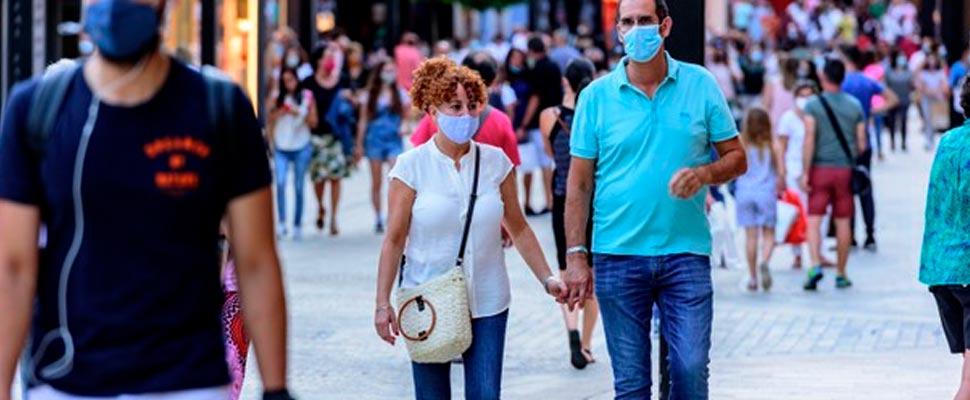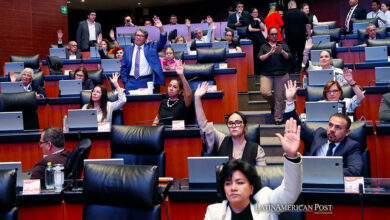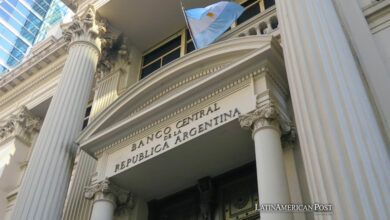After living one of the most difficult moments of humanity, the worst may still be to come

Covid-19 showed us how fragile the system on which humanity is founded is. Photo: Freepik
LatinAmerican Post | Santiago Gómez Hernández
Listen to this article
Leer en español: Opinión: La peor post pandemia posible
The Covid-19 pandemic showed us how fragile the system on which humanity is founded is. An outbreak in a market in the middle of China and a couple of months later, everyone locked in their homes without frankly knowing how to face this threat that put the health systems of the planet in check.
The worst of all this is not what we are experiencing, but what may come next. Much to our regret, a pandemic of these magnitudes is not something spontaneous and unrepeatable, on the contrary, several experts have been predicting it for some years and warn that it will not be the last.
But, instead of preparing ourselves, we very much risk being even more exposed than before facing the coronavirus. For example, the looming post-covid economic crisis may be one of the most damaging factors for another eventual pandemic.
Biden no se ha comprometido a compartir el gigantesco excedente que tendrá disponible en el verano. Derrotar al virus requiere que los países acaparadores muestren generosidad y empatía. Nadie está a salvo hasta que el vecindario esté a salvo, escribo. https://t.co/wR18gw1kzH
— Dolia Estévez (@DoliaEstevez) March 16, 2021
When governments are in debt and in search of resources to finance the state apparatus or in investment, many will seek international credits so as not to end up bankrupt. However, depending on interest rates and the success of subsequent economic measures, there will be several countries that will have to guarantee before or after the loan, tax reforms to calm the lenders.
The case of Greece when it comes to refinancing its debts in the hands of the European Troika (European Central Bank, European Commission, and the International Monetary Fund) may be one of the worst ways. Guaranteeing austerity and the payment of the debt almost ended the Welfare State. It increased taxes, decreased spending (for example in the health system), and made it difficult for citizens to get pensions and savings.
Also read: What did Pope Francis achieve in his visit to Iraq?
Now, if the international financial system wants developing countries and more fragile economies to emerge from this crisis through loans and increased taxes, and decreased spending, this will only create a perfect scenario for a tragedy with a new pandemic.
If Covid-19 showed us something, it is that inequality and the lack of a universal health system will end up affecting the poorest. The underfunding of the already poor health systems in Latin America will cause the next pandemic to hit much harder and affect the most vulnerable citizens to a greater extent.
A tax reform that focuses on the lower or middle class will also change the consumption habits of citizens seeking economy in diet and little focus on preventive health. Ideal ingredients for a catastrophe of higher levels than the ones we are experiencing.
La #COVID19 condena a la miseria a millones de familias
Desempleo, precariedad y falta de acceso a la atención médica gratuita están causando una ola endeudamiento en América Latina.
La parte más dramática: aquellos que, pese a sus esfuerzos, pierden a sus seres queridos./cc pic.twitter.com/tVO2rPmPdo
— DW Español (@dw_espanol) March 16, 2021
This is why an international or at least regional agreement is necessary, which seeks to take care of the most vulnerable and health systems. We cannot accept credits from vulture funds, or usurious loans, that a current government, thinking that it will be a problem in the future, embarks on indebting the country.
Moreover, if there is something we must learn from the coronavirus (and not a new language or read a new book) it is that our health systems must be financed, medical personnel must be well paid and not owe them salaries, because it will be them (and they) again ) those who are the striking force in the face of a new eventual catastrophe.
Let's take care of the ventilators that the countries bought in lots, let's train our staff to make them usable, let's learn about the transport chains of vaccines, and let's begin to bring preventive health to the entire population in the most remote places of our countries and learn from those countries that knew how to face the pandemic in the best way and with the lowest costs (both economic and human).





